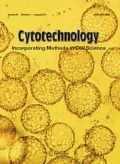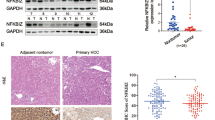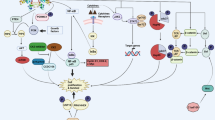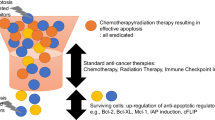Abstract
p38 mitogen-activated protein kinase (MAPK) belongs to the MAPK superfamily, phosphorylating serine and/or threonine residues of the target proteins. The activation of p38 MAPK leads to cell growth, differentiation, inflammation, survival or apoptosis. In this study, we tested the effect of two highly specific and potent inhibitors of p38 MAPK (namely, SB203580 and SB202190) on human breast cancer cell line MDA-MB-231 to elucidate the controversial role of p38 MAPK on cell proliferation and/or cell migration/metastasis further. It was determined that the IC50 value of SB203580 was 85.1 µM, while that of SB202190 was 46.6 µM, suggesting that SB202190 is slightly more effective than SB203580. To verify the effect of each inhibitor on cell proliferation and cytotoxicity, the cells were treated with various doses of SB203580 and SB202190 and examined using iCELLigence system. No significant effect of 1 and 5 µM of both inhibitors were seen on cell proliferation as compared to the DMSO-treated control cells for up to 96 h. On the other hand, both SB203580 and SB202190 significantly prevented cell proliferation at a concentration of 50 µM. SB202190 was again more effective than SB203580. Afterwards, we tested the effect of each inhibitor on cell migration using wound assay. Both SB203580 and SB202190 significantly reduced cell migration in a time-dependent manner at a concentration of 50 µM. However, interestingly it was observed that a low and noncytotoxic dose of 5 µM of SB203580 and SB202190 also did cause significant cell migration inhibition at 48 h of the treatment, corroborating the fact that p38 MAPK pathway has a critical role in cell migration/metastasis. Then, we tested whether each p38 MAPK inhibitor has any effect on cell adhesion during a treatment period of 3 h using iCELLigence system. A concentration of only 50 µM of SB202190 reduced cell adhesion for about 1.5 h (p < 0.001); after that period of time, cell adhesion in 50 µM SB202190-treated cells returned to the level of the control cells. To determine the mechanism of growth and cell migration inhibitory effects of p38 MAPK inhibitors, the activation/inactivation of various proteins and enzymes was subsequently analyzed by PathScan® Intracellular Signaling Array kit. The ERK1/2 phosphorylation level was not modified by low concentrations (1 or 5 µM) of SB202190 and SB203580; while a high concentration (50 µM) of both inhibitors caused significant reductions in the ERK1/2 phosphorylation. In addition, it was determined that both p38 MAPK inhibitors caused significant increases on the Ser15 phosphorylation of mutant p53 in MDA-MB-231 under these experimental conditions; while SB202190 was more potent than SB203580.







Similar content being viewed by others
References
Adhikary A, Mohanty S, Lahiry L, Hossain DMS, Chakraborty S, Das T (2010) Theaflavins retard human breast cancer cell migration by inhibiting NF-κB via p53-ROS cross-talk. FEBS Lett 584:7–14
Aras B, Yerlikaya A (2016) Bortezomib and etoposide combinations exert synergistic effects on PC-3 prostate cancer line. Oncol Lett 11:3179–3184
Daroqui MC, Vazquez P, de Kier Bal, Joffé E, Bakın AV, Puricelli LI (2012) TGF-β autocrine pathway and MAPK signaling promote cell invasiveness and in vivo mammary adenocarcinoma tumor progression. Oncol Rep 28:567–575
del Barco Barrantes I, Nebreda AR (2012) Roles of p38 MAPKs in invasion and metastasis. Biochem Soc Trans 40:79–84
Du J, Wang X-F, Zhou Q-M, Zhang T-L, Lu Y-Y, Zhang H, Su S-B (2013) Evodiamine induces apoptosis and inhibits metastasis in MDA-MB-231 human breast cancer cells in vitro and in vivo. Oncol Rep 30:685–694
Edlund S, Bu S, Schuster N, Aspenström P, Heuchel R, Heldin NE, ten Dijke P, Heldin CH, Landström M (2003) Transforming growth factor-beta1 (TGF-beta)-induced apoptosis of prostate cancer cells involves Smad7-dependent activation of p38 by TGF-beta-activated kinase 1 and mitogen-activated protein kinase kinase 3. Mol Biol Cell 14:529–544
Freshney RI (2005) Culture of animal cells: a manual of basic techniques. Wiley, Hoboken
Gallo KA, Johnson GL (2002) Mixed-lineage kinase control of JNK and p38 MAPK pathways. Nat Rev Mol Cell Biol 3:663–672
Geiger PC, Wright DC, Han DH, Holloszy JO (2005) Activation of p38 MAP kinase enhances sensitivity of muscle glucose transport to insulin. Am J Physiol Endocrinol Metab 288:E782–E788
Gutiérrez-Uzquiza Á, Arechederra M, Bragado P, Aguirre-Ghiso JA, Porras A (2012) p38α mediates cell survival in response to oxidative stress via induction of antioxidant genes: effect on the p70S6K pathway. J Biol Chem 287:2632–2642
Huang S, New L, Pan Z, Han J, Nemerow GR (2000) Urokinase plasminogen activator/urokinase-specific surface receptor expression and matrix invasion by breast cancer cells requires constitutive p38alpha mitogen-activated protein kinase activity. J Biol Chem 275:12266–12272
Kim B-M, Kim D-H, Park J-H, Surh Y-J, Na H-K (2014) Ginsenoside Rg3 inhibits constitutive activation of NF-κB signaling in human breast cancer (MDA-MB-231) cells: ERK and Akt as potential upstream targets. J Cancer Prev 19:23–30
Koçak FE, Erdoğan E, Özyiğit F, Yerlikaya A (2013) Evaluation of antiproliferative and antimetastatic effects of heparin and erythropoietin on B16F10 melanoma cell line. Cell Mol Biol (Noisy-le-grand) 59:OL1894–OL1898
Kocanova S, Buytaert E, Matroule JY, Piette J, Golab J, de Witte P, Agostinis P (2007) Induction of heme-oxygenase 1 requires the p38MAPK and PI3K pathways and suppresses apoptotic cell death following hypericin-mediated photodynamic therapy. Apoptosis 12:731–741
Koul HK, Pal M, Koul S (2013) Role of p38 MAP kinase signal transduction in solid tumors. Genes Cancer 4:342–359
Kumar S, Jiang MS, Adams JL, Lee JC (1999) Pyridinylimidazole compound SB 203580 inhibits the activity but not the activation of p38 mitogen-activated protein kinase. Biochem Biophys Res Commun 263:825–831
Kumar B, Sinclair J, Khandrika L, Koul S, Wilson S, Koul HK (2009) Differential effects of MAPKs signaling on the growth of invasive bladder cancer cells. Int J Oncol 34:1557–1564
Lawson SK, Dobrikova EY, Shveygert M, Gromeier M (2013) p38alpha mitogen-activated protein kinase depletion and repression of signal transduction to translation machinery by miR-124 and -128 in neurons. Mol Cell Biol 33:127–135
Li W, Fan J, Chen M, Guan S, Sawcer D, Bokoch GM, Woodley DT (2004) Mechanism of human dermal fibroblast migration driven by type I collagen and platelet-derived growth factor-BB. Mol Biol Cell 15:294–3009
Liang CC, Park AY, Guan JL (2007) In vitro scratch assay: a convenient and inexpensive method for analysis of cell migration in vitro. Nat Protoc 2:329–333
Lopez-Bergami P (2011) The role of mitogen- and stress-activated protein kinase pathways in melanoma. Pigment Cell Melanoma Res 24:902–921
Lu Z, Xu S (2006) ERK1/2 MAP kinases in cell survival and apoptosis. IUBMB Life 58:621–631
Lv D, Liu J, Guo L, Wu D, Matsumoto K, Huang L (2016) PRAS40 deregulates apoptosis in Ewing sarcoma family tumors by enhancing the insulin receptor/Akt and mTOR signaling pathways. Am J Cancer Res 6:486–497
Miyake M, Goodison S, Urquidi V, Gomes Giacoia E, Rosser CJ (2013) Expression of CXCL1 in human endothelial cells induces angiogenesis through the CXCR2 receptor and the ERK1/2 and EGF pathways. Lab Invest 93:768–778
Muniyappa H, Das KC (2008) Activation of c-Jun N-terminal kinase (JNK) by widely used specific p38 MAPK inhibitor SB202190 and SB203580: a MLK-3-MKK7-dependent mechanism. Cell Signal 20:675–683
Nagaraj SRM, Balaraju Y, Shetty N, Salimath BP (2012) Metastatic events of MDA-MB-231 cells induced by angiogenic factors VEGF or MYA1 are inhibited by Tinospora cordifolia hexane fraction (tchf). IOSR J Pharm 2:24–30
Nemoto S, Xiang J, Huang S, Lin A (1998) Induction of apoptosis by SB202190 through inhibition of p38beta mitogen-activated protein kinase. J Biol Chem 273:16415–16420
Porras A, Guerrero C (2011) Role of p38α in apoptosis: implication in cancer development and therapy. Atlas Genet Cytogenet Oncol Haematol 15:316–326
Sicard P, Clark JE, Jacquet S, Mohammadi S, Arthur JS, O’Keefe SJ, Marber MS (2010) The activation of p38 alpha, and not p38 beta, mitogen-activated protein kinase is required for ischemic preconditioning. J Mol Cell Cardiol 48:1324–1328
Stone MK, Kolling GL, Lindner MH, Obrig TG (2008) p38 mitogen-activated protein kinase mediates lipopolysaccharide and tumor necrosis factor alpha induction of shiga toxin 2 sensitivity in human umbilical vein endothelial cells. Infect Immun 76:1115–1121
Valladares A, Alvarez AM, Ventura JJ, Roncero C, Benito M, Porras A (2000) p38 mitogen-activated protein kinase mediates tumor necrosis factor-alpha-induced apoptosis in rat fetal brown adipocytes. Endocrinology 141:4383–4395
Walsh MF, Thamilselvan V, Grotelueschen R, Farhana L, Basson MD (2003) Absence of adhesion triggers differential FAK and SAPKp38 signals in SW620 human colon cancer cells that may inhibit adhesiveness and lead to cell death. Cell Physiol Biochem 13:135–146
Xu L, Chen S, Bergan RC (2006) MAPKAPK2 and HSP27 are downstream effectors of p38 MAP kinase-mediated matrix metalloproteinase type 2 activation and cell invasion in human prostate cancer. Oncogene 25:2987–2998
Yan Q, Bach DQ, Gatla N, Sun P, Liu J-W, Lu J-Y, Paller AS, Wang X-Q (2013) Deacetylated GM3 promotes uPAR-associated membrane molecular complex to activate p38 MAPK in metastatic melanoma. Mol Cancer Res 11:665–675
Yerlikaya A, Dokudur H (2010) Investigation of the eIF2α phosphorylation mechanism in response to proteasome inhibition in melanoma and breast cancer cells. Mol Biol (Mosk) 44:760–768
Yerlikaya A, Erin N (2008) Differential sensitivity of breast cancer and melanoma cells to proteasome inhibitor velcade. Int J Mol Med 22:817–823
Yerlikaya A, Okur E, Ulukaya E (2012) The p53-independent induction of apoptosis in breast cancer cells in response to proteasome inhibitor bortezomib. Tumour Biol 33:1385–1392
Zhang L, Chen W, Li X (2008) A novel anticancer effect of butein: inhibition of invasion through the ERK1/2 and NF-κB signaling pathways in bladder cancer cells. FEBS Lett 582:1821–1828
Zhuang S, Demirs JT, Kochevar IE (2000) p38 mitogen-activated protein kinase mediates bid cleavage, mitochondrial dysfunction, and caspase-3 activation during apoptosis induced by singlet oxygen but not by hydrogen peroxide. J Biol Chem 275:25939–25948
Acknowledgements
This study was funded by Dumlupınar University Scientific Project No. 2015-85.
Author information
Authors and Affiliations
Corresponding author
Rights and permissions
About this article
Cite this article
Düzgün, Ş.A., Yerlikaya, A., Zeren, S. et al. Differential effects of p38 MAP kinase inhibitors SB203580 and SB202190 on growth and migration of human MDA-MB-231 cancer cell line. Cytotechnology 69, 711–724 (2017). https://doi.org/10.1007/s10616-017-0079-2
Received:
Accepted:
Published:
Issue Date:
DOI: https://doi.org/10.1007/s10616-017-0079-2




